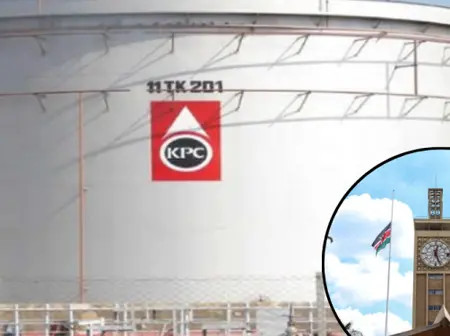The National Assembly has approved the long‑anticipated privatization of Kenya Pipeline Company (KPC), setting in motion what could be the largest initial public offering in Nairobi in more than two decades.
“Listing KPC on the NSE will not only enable the company to raise capital for its regional expansion and LPG diversification plans but also deepen our capital markets by providing more investment opportunities for Kenyans,” John Mbadi, Cabinet Secretary of the National Treasury, said in February.
The sessional paper lays out strict conditions designed to protect public interest.
The Office of the Auditor General must audit the process within six months of completion. Transaction advisers, capped at a fee of KSh 100 million, must be competitively procured with Treasury approval for any increase.
To prevent excessive concentration of ownership, the Privatization Commission must impose shareholding limits, safeguard against insider dominance, and ensure a broad base of local participation.
Kenyan citizens, including youth, women, and persons with disabilities, are to be given priority allocations under an Employee Share Ownership Plan and minimum retail investor quotas. Subsidiaries such as Kenya Petroleum Refineries Limited must also be fully evaluated and disclosed in the prospectus.
Parliament further insisted that contingent liabilities be transparently factored into the valuation. These include pending lawsuits amounting to KSh 5.75 billion, Makueni County compensation claims worth KSh 3.8 billion, project losses and disputes such as the Mzima pipeline and Line V, and disputed LPG facility transfers valued at KSh 192.6 million.
The privatization plan comes against a backdrop of fiscal pressure and renewed privatization policy. The government expects to raise about KSh 100 billion ($1.15 billion) from the share sale, proceeds earmarked for development spending, pending bills, or debt management.
Earlier in 2025, the Cabinet approved the transaction, but the process was briefly halted in August when a court injunction froze the sale after a suit by the Consumers Federation of Kenya. The injunction was lifted in September, clearing the way for parliamentary debate. Lawmakers’ approval now advances the process, though opponents have threatened new legal challenges, citing rushed debate and inadequate scrutiny.
The offering is expected to be Kenya’s first major IPO in more than a decade and is seen as a test of investor confidence in the Nairobi Securities Exchange, which has rallied in 2025. Yet significant uncertainties remain: market appetite amid high interest rates, litigation risks, valuation disputes, and concerns that privatization could raise fuel transport tariffs.
The House is also considering the Privatisation Bill 2025, which aims to overhaul the legal framework for divestments. If enacted, it will govern KPC’s IPO and subsequent state sell‑downs.

Leave a Reply